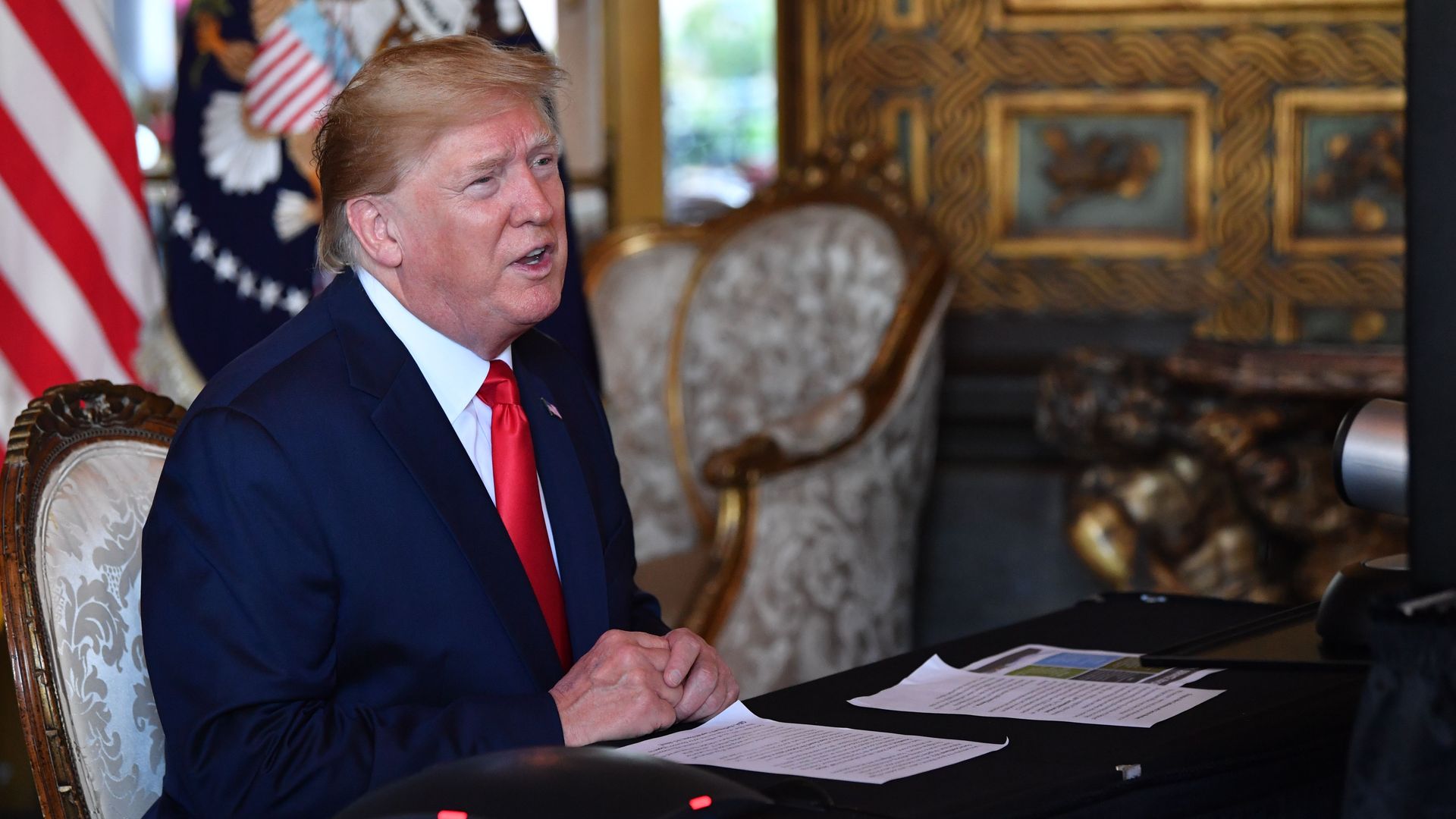5 major Trump environmental regulation rollbacks in 2019
Add Axios as your preferred source to
see more of our stories on Google.

President Trump on Dec. 24. Photo: Nicholas Kamm/AFP via Getty Images
The Trump administration so far targeted about 85 environmental regulations that protect air, water, land and public health from climate change and fossil fuel pollution, according to CNBC.
Why it matters: Eliminating these regulations can increase premature deaths from pollutants and produce higher levels of greenhouse gas emissions, according to research from the NYU Law School.
- The Trump administration has prioritized eliminating regulations that it sees as burdensome to the fossil fuel industry and the economy in general.
Here are five major rollbacks in 2019:
Methane leaks: The Trump administration announced plans to weaken regulations on methane, one of the most potent greenhouse gases.
- If adopted, oil and gas companies would not be required to adopt technology to monitor and fix methane leaks from facilities and pipelines.
Clean water rule: The EPA repealed an Obama-era regulation that limited the amount of pollution and chemicals in the country’s rivers, lakes, streams and wetlands.
- The repeal allows people and businesses to discharge toxic substances into waterways without a permit, potentially harming the country’s sources of drinking water and habitats for wildlife.
Endangered Species Act: The Trump administration said it would alter the Endangered Species Act and make it harder to protect wildlife from human development and global warming.
- The new rules make it easier for federal agencies to delist threatened animals and plants. The Endangered Species Act contributed to saving the bald eagle, the grizzly bear and the American alligator.
Coal plants: The administration introduced the Affordable Clean Energy rule, which keeps coal-powered plants open longer. It gives states more power to control emissions and less authority to the federal government in setting emissions standards.
Auto pollution: The White House also prepared to soften regulations on automobile emissions that contribute to global warming.
- The administration said cutting the regulations is necessary for economic and safety reasons, and environmentalists say consumers would spend billions more in fuel costs and accelerate climate change if the administration removes the regulations.
Go deeper:
